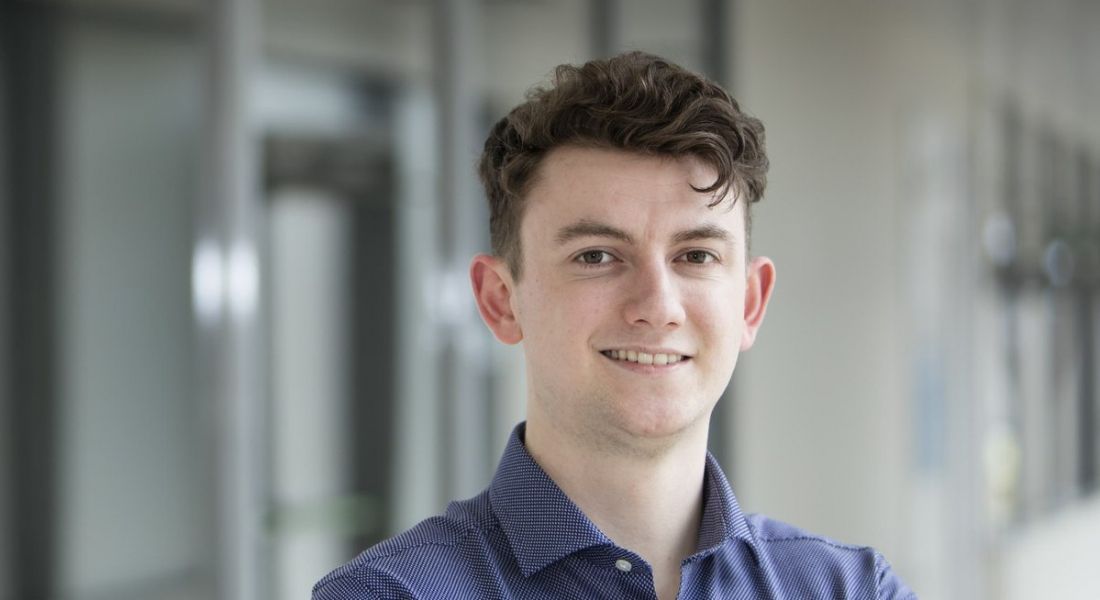The jump from education to a full-time job can be a big transition, but with proper mentoring the journey can be both smooth and rewarding.
Entering the working world straight out of college can feel a bit daunting, especially when it comes to those entering the world of life sciences.
After all, everyone working in the biopharma and life sciences sector plays a part in patient safety and product quality within the area of health, which can feel like a lot of responsibility.
However, with the right mentoring and support, graduates can really flourish within the industry. Philip Ryan is a graduate at Amgen and he spoke about the challenge that can come with jumping from university to a job in the industry.
What did you study in college?
I studied biotechnology at Maynooth University.
With this programme, are you now working in your desired industry?
Absolutely. My degree gave me a taste of industry, which the graduate programme builds on. Manufacturing has always been my desired area of work and the programme gives me the freedom to experience all aspects of it.
What drew you to Amgen when you were seeking work as a graduate?
I began my career in Amgen as an intern during my fourth year of college. The internship is what solidified my goal of joining the graduate programme at Amgen. The wealth of experience Amgen has in its employees and its reputation as a great place to work are well known. Additionally, it’s a company that has a diverse drug portfolio, which means new projects are always around the corner.
What expectations did you have before you began the programme?
I expected to be involved primarily in a challenging, project-based role. I expected a steep learning curve to bridge the gap between university and industry, not just in terms of process knowledge, but other key skills such as communication in a professional environment and time management to deliver key project milestones.
What duties and responsibilities were you given initially?
Initially, I supported various projects, building my knowledge through observation and training. Most valuably, I was given guided mentoring while learning mostly through challenging projects. I learned how to navigate quality management systems and how to manage projects.
Did the scope of your work change as the programme progressed?
Yes. My role developed from supporting projects with mentoring from another team member to being the sole representative for manufacturing on key site projects. The mentoring I received during my initial development allows me to be confident in my decision-making as responsibility increases, while the increasing challenge keeps me searching for more ways to build my knowledge.
Can you describe a typical day in your role?
A typical day as a manufacturing graduate in Amgen involves a lot of collaboration with cross-functional teams. I have an average of two meetings a day where I meet with team members to discuss actions to be taken to progress projects. Whatever actions come out of these meetings, I must investigate and problem-solve. Solutions can often be diverse, requiring updates to operating procedures, training manuals or electronic record systems, for example.
How do your responsibilities compare to more experienced employees’?
At Amgen, I find accountability is an important value throughout the organisation, regardless of position or experience. Everyone has a hand in patient safety and product quality, so I never take the responsibility of the job lightly and involve some level of critical thinking in everything I do. However, with experience comes additional responsibilities. Whilst my primary focus and attention may be on meeting team goals, more senior leaders must look to meet larger goals for the whole site and company.
Do you feel more prepared for working life after completing this programme?
Definitely. To go from university straight to the real world is a challenge. But, with a bit of drive, you quickly adjust to the professional environment, and I find my CV quickly filling with skills that will stand to me for life.
Why should someone apply to the graduate programme at Amgen?
Amgen gives you so much opportunity to learn and develop through responsibility and challenge. There’s amazing trust and respect between colleagues that makes growing and learning as a young professional here highly enjoyable.




